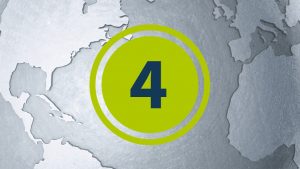- Wider political imperatives
- Key Questions
- Notes on the sub-criteria
- References
- Bibliography
- Further criteria
Key Questions
![]()
A. Bilateral relations
- In which fields and disciplines do robust relations exist with the partner country?
B. Relations with the European Union and Germany
- Do existing priorities for international cooperation at EU or national levels offer worthwhile starting points for academic cooperation?
C. Sanctions and embargoes
- Are sanctions in place against the partner country? Do any such sanctions have concrete effects on science and academia?
- Do sanctions bar certain universities or institutions from involvement in cooperation projects?
- Do the sanctions impact institutional funding or do they have implications for individual exchanges?
- Are you at risk of unwittingly being instrumentalised for political, ideological or strategic goals?
- Is there the risk that a cooperation project, support for certain networks or involvement in certain events may have a legitimating effect?
D. Arms control and non-proliferation
- Are you aware of the potential for your own research to be misused or abused? (BAFA 2022: 18)
- In the context of scientific freedom, have you undertaken an independent review of whether official authorisation is required to export physical items or information from your project or cooperation arrangement? For example, such exports could take the form of goods such as laboratory or testing equipment. They could also involve transferring data via or into physical storage devices such as storage media, email servers or cloud storage services. Lastly, they can be ‘intangible’ and could take the form of oral transfer of knowledge and skills. (BAFA 2022: 18)
Notes on the sub-criteria
![]()
A. Bilateral relations
B. Relations with the European Union and Germany
Academic partnerships build bridges, even in challenging political constellations. In many cases, channels of cooperation such as these, which look back on many years of sustainable and ongoing bilateral history, exist in spite of political adversity. The history of German-Israeli academic collaborations following the Second World War are an outstanding example of this: ‘After war, forced displacement and genocide, science has prepared a way for trust and friendship between Germany and Israel: a priceless achievement. Years before official diplomatic relations were commenced, scientists forged the first bonds during the Fifties. It was out of this that a close network of German-Israeli research relationships emerged.’ (Professor Helmut Schwarz in the publication ‘Israel country profile’, GATE Germany, 2015: 071) Yet there are also other constellations – North Korea, for example – where academic exchange can strengthen a regime, no matter how much the exchange may be constituted in its intention through professional and personal contact.
C. Sanctions and embargoes
D. Arms control and non-proliferation
Sub-criteria (C) and (D) place academic cooperations within European and national legal frameworks and therefore form a critical point of reference for an institution’s foreign academic policy position. Further, the wider political imperatives for a cooperation project can be analysed and assessed through critical reflection on perspectives on research ethics and academic responsibility.
One point worth stressing is that, in challenging contexts where political developments have led to tense diplomatic relations, engagement through foreign academic policy can build a bridge for long-lasting bilateral or multilateral exchange. Nevertheless, in some cases it may be necessary to make informed and equally sober readjustments to academic partnerships and professional exchanges.
Where foreign academic policy makes a clear distinction between political level-headedness and political imperatives, it can form the foundation for long-term sustainable strategies that can break apart what Münkler describes as the ‘petty-mindedness, short-termism and emotionality’ of anti-liberal regimes (Münkler 2020: 12)2. Policies such as these bring the wider perspectives, long-term goals and rational political processes back to the fore. With regard to effective EU internal policy and European diplomacy, Maull calls for a political approach that ‘leaves space for mutual empathy, a readiness to compromise and consideration for the interests of others[.] […] Nevertheless, in the face of uncertainty and unpredictability, bold political decisions are still sometimes required. It cannot be expected that these decisions will only ever yield benefits: collaborative action also means that costs will be incurred that must be shared and risks will arise that must be borne together.’ (Maull 2018: 60)3
This section lists some reference sources to facilitate initial evaluations. The most important sub-criteria are supplied first, followed by the information available from each source. In many instances the sources provide access to information from third parties that is continually updated by the third parties themselves.
References
![]()
This section lists some reference sources to facilitate initial evaluations. Firstly the most important sub-criteria are given followed by the information available from each source.
A. Bilateral relations
B. Relations with the European Union and Germany
German Federal Foreign Office and Foreign Cultural and Educational Policy
The primary source of information on wider political questions is the German Federal Foreign Office and its specific Cultural relations and Education Policy page.
International bureau of the German Aerospace Centre’s (DLR) Project Management Agency
In terms of the academic context, the International Bureau of the DLR Project Management Agency works on behalf of the Federal Ministry of Education and Research (BMBF) to provide a wide range of information materials. The DLR prepares publications focusing on specific countries and regions, discussing the political environment, bilateral cooperation and partnership priorities.
Kooperation international
Another portal that provides detailed information relevant to the sub-criteria given above is Kooperation international
. Users can access comprehensive country- and issue-specific analyses of their chosen university location and opportunities for cooperation.
Kooperation international is part of the Federal Government’s strategy to boost internationalisation in science and research, coordinated by the Federal Ministry of Education and Research (BMBF). The portal provides information on international research, innovation and partnerships and helps funding, research and educational institutions network with one another. The portal is administered by the DLR Projektträger and VDI Technologiezentrum GmbH.
German Federal Office for Economic Affairs and Export Control (BAFA)
The website of the German Federal Office for Economic Affairs and Export Control (BAFA) provides a summary of embargoes in place of countries
, information on embargo regulations and on relevant legal bases such as the EU dual-use regulation.
‘EU Sanctions Map’
The EU Sanctions Map is also worth consulting. This provides a comprehensive overview of current EU and UN sanctions in the form of an online world map. Similar information is also available in the financial sanctions list ‘FiSaLis 2024’ (available in German only). The list is intended for users in the area of law.
Federal Office for Economic Affairs and Export Control (BAFA) and Bundesamt für Verfassungsschutz
The Federal Office of Economics and Export Control (BAFA) provides a wide range of information for raising awareness of proliferation risks in research and of the associated legal bases in export law. This includes the topic pages Export controls and science in academia and relevant publications, in particular the ‘Handbook for Export Control and Academia’.
The German domestic intelligence servicesprovides information on espionage, anti-proliferation and on protection against threats to science. This can provide helpful guidance in matters linked to academic cooperations.
Stockholm International Peace Research Institute (sipri)
The databases of the Stockholm International Peace Research Institute (sipri) provide, for example, comprehensive information on dual-use items, on arms trade control and on military spending. As a research institution, sipri also provides information on arms embargoes and compiles reports on arms exports.
DFG and Leopoldina: Joint Committee on the Handling of Security-Relevant Research
The Joint Committee on the Handling of Security-Relevant Research is of particular relevance to those working in German academic contexts. The purpose of this committee is to ‘raise awareness dual-use issues relating to research results and to further develop and foster both a responsible approach to security-relevant research and, in relation to this, self-governance within the research community.’ 4 Its website contains illustrative case studies outlining effective ways of raising awareness among researchers and information on the setting up of Committees for Ethics in Security-Relevant Research (KEFs).
Further reference works and lighthouse projects produced by German alliance partners that are relevant to academic responsibility, academic freedom and issues of research ethics are listed in more detail under Criterion 4, which deals with areas specific to academia and cooperation contexts. Publications by the Joint Committee are considered in greater detail below.
Bibliography
Bibliography
1 Schwarz, 2015, interview. Source: https://www.gate-germany.de/files/Laenderprofil-Israel.pdf (last accessed: 20 September 2024).
2 Ausführungen in Anlehnung an Herfried Münkler. Münkler, Herfried (2020): Neuzeit der mächtigen Männer. Die Weltenlenker. In: .loyal Das Magazin für Sicherheitspolitik, 3, 202.
3 Maull, Hans W.: Autismus in der Außenpolitik, In: Stanzel, Volker (ed.): Die neue Wirklichkeit der Außenpolitik: Diplomatie im 21. Jahrhundert. SWP-Studie 23, November 2018; pp. 55-62.
4 Extract from https://www.leopoldina.org/ueber-uns/kooperationen/gemeinsamer-ausschuss-dual-use/. (Last accessed: 16 July 2024).
Further criteria
Criterion 1: The wider security situation
The presented criteria catalog is built upon the foundational dimension of personal safety, encompassing key factors essential for safety considerations.
 Criterion 3: Constitutional and sociopolitical framework
Criterion 3: Constitutional and sociopolitical framework
Global scientific partnerships necessitate cultural sensitivity and legal acumen. Further training support contributes to proficiency in these aspects.
Criterion 4: Opportunities and risks of the respective academic system
Academic collaborations entail potentials and risks. Performance, internationalization, alignment, and ethics play a crucial role.
Criterion 5: Performance and fit of the academic partner institution(s)
Criterion 5 evaluates academic partners’ performance and fit through rankings, education analyses, and bibliometric databases.
Criterion 6: Integration into institutional strategies
Professional cooperation management requires integration into the overall institutional strategy. This includes adaptability and openness.



